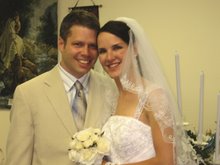I believe there are those that have the tribulation ending on Hanukah. According to this article Hannukah is the “2nd” Tabernacles or the mirror image of the 2nd Passover.
What makes the 2nd Passover so compelling to me is that we clearly are not worthy in any way. The 2nd Passover is for someone who touched a dead body and even lepers. Also I believe it relates to the Parable of the Prodigal Son (a man on a journey) and below it even mentions this to include someone close by that willfully does not partake in the first Passover. In every way without Jesus we are not a Holy People. In 2 Chronicles 30 where King Hezekiah pleads for those who had not even purified themselves for the 2nd Passover, but asked Jehovah to please “pardon everyone who prepares his heart to seek God…” I see what surely must be our means of redemption.
Anyway here is an excerpt of the article and then the link for further review if you’d like:
The Pesach lamb is a unique offering. Before the exodus from Egypt, all offerings were burnt completely on the altar. For man to attempt to eat that which was designated for HaShem would have been a desecration of the offering. The first meat of a offering that man was allowed to eat was the Pesach offering. Thus it was a declaration that Bnei Israel were 'a holy people', whose bodies were elevated to the holiness of an altar. Only they could eat that which was designated for HaShem; and when they did, it was considered as if the offering was burnt on the altar. This is why the Torah restricts our diet. Just as we may not desecrate the altar with an unacceptable offering, so too a Jew may not defile his body with food that the Torah deems unfit.
The Talmudic Sages go on to tell us who could celebrate Pesach Sheni, this wonderful opportunity to draw nearer to HaShem:
Pesachim 93a Our Rabbis taught: The following keep the second [Passover]: zabin and zaboth, male lepers and female lepers, niddoth and those who had intercourse with niddoth, and women after confinement, those who [do not observe the first Passover] inadvertently, and those who are forcibly prevented, and those who [neglect it] deliberately, and he who is unclean, and he who was in ‘a journey afar off’. If so, why is an unclean person mentioned? [You ask] ‘why is he mentioned’? [Surely to teach] that if he wishes to keep it at the first we do not permit him? Rather [the question is] why is [a person] on a journey afar off mentioned? — To exempt him from kareth, this being in accordance with the view that it is accepted.
Anyone who did not bring a Pesach offering, whether because of impurity or even because he had willfully transgressed HaShem's will, was thus given the opportunity to compensate for his shortcoming by bringing an offering on Pesach Sheni. This gave everyone the ability, late though it may be, to rejoin the community of Israel through his teshuva, his repentance.
Rashi, quoting the Talmud in Pesachim 93b, points out that there is a dot that appears in the Torah scroll on the last letter of the word ‘rechoka’ (on a distant journey). This dot comes to teach us that ‘rechoka’ need not be taken literally; indeed, even if a person stood on the threshold of the courtyard, right outside where the Pesach lamb is being sacrificed, on the 14th of Nisan, and intentionally refused to join in the sacrifice, even this person is to be given a second chance. In effect he had been on a distant journey; he wandered far away from serving HaShem.
Pesach Sheni, then, is like Chanukah, which was a make-up for Succoth. These are the only two festivals that provide a second chance for certain individuals to be able to celebrate. The fact that these are the only festivals with a make-up, suggests that these two festivals are related. This bi-modality of the months was discussed in greater detail in the study of rains.
http://www.betemunah.org/sheni.html#_Toc67627345
Blessings,
Tony
Tuesday, May 13, 2008
Subscribe to:
Post Comments (Atom)


No comments:
Post a Comment